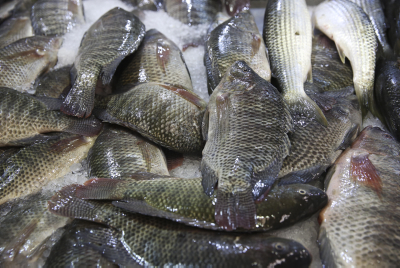Despite Price Cut, Fish Prices Still Smell Bad

A significant drop in the import duty on fish that was supposed to make fish cheaper for consumers has apparently not done the job, a survey by the Central Bureau of Statistics has found. Instead of the savings being passed on to consumers, importers and middlemen are pocketing the extra profits that resulted in the NIS 8 drop in import duty per kilogram of fish.
The duty drop – from NIS 13.7 per kilo to NIS 5 – went into effect in March, as part of Finance Minister Moshe Kachlon’s plan to lower the cost of basic food in advance of Pesach. The relaxed duties are to remain in effect for six months.
The plan worked initially. During the six months before the lowered duties, the average price of the popular amnon (tilapia) fish was NIS 41 per kilo. In March, the price fell to NIS 38.5 per kilo, and sank to NIS 32.2 in April, right before Pesach. Since then, the price has steadily risen, climbing back to NIS 38 per kilo, the survey showed.
Meanwhile, the survey showed, the Ministry’s move made the fish market less competitive as well, forcing local producers to drop prices by NIS 2 in order to remain competitive – even though they were not getting any tax breaks. In order to make that up, the Treasury recently granted producers and NIS 20 million subsidy.
Since the duty cut, some 3,500 tons of fish have been imported into Israel, and local growers say they need more money to remain competitive. The Treasury, meanwhile, is considering extending the duty cut for imported fish.
To Read The Full Story
Are you already a subscriber?
Click "Sign In" to log in!

Become a Web Subscriber
Click “Subscribe” below to begin the process of becoming a new subscriber.

Become a Print + Web Subscriber
Click “Subscribe” below to begin the process of becoming a new subscriber.

Renew Print + Web Subscription
Click “Renew Subscription” below to begin the process of renewing your subscription.












